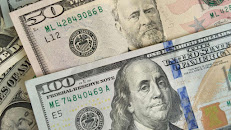The Demographic Impact of Tax Changes ©Avinash Kumar/Unsplash
Newsweek reports that the demographic most affected by the proposed changes in capital gains taxes are predominantly white, as stated by the administration.
Implementing this policy is part of a broader strategy aimed at reducing racial disparities in wealth, which have persisted despite some progress in areas like education and corporate diversity.
Newsweek reports that the demographic most affected by the proposed changes in capital gains taxes are predominantly white, as stated by the administration.
Implementing this policy is part of a broader strategy aimed at reducing racial disparities in wealth, which have persisted despite some progress in areas like education and corporate diversity.
The Demographic Impact of Tax Changes©Avinash Kumar/Unsplash
Newsweek reports that the demographic most affected by the proposed changes in capital gains taxes are predominantly white, as stated by the administration.
Implementing this policy is part of a broader strategy aimed at reducing racial disparities in wealth, which have persisted despite some progress in areas like education and corporate diversity.
Combined Tax Burden Could Reach 59% ©Wikimedia Commons
Under the new proposal, some high-income earners could face a combined state and federal capital gains tax rate of up to 59%.
Including the new federal proposal along with existing state capital gains taxes, the policy would significantly increase the tax burden on wealthy investors.
Addressing the Racial Wealth Gap ©Clay Banks/Unsplash
The administration's budget suggests that increasing the capital gains tax rate could contribute to reducing the racial wealth gap.
Despite advancements in educational attainment and increased diversity in corporate leadership, substantial economic disparities remain between racial groups.
Criticism of the Tax Reform ©Wikimedia CommonsCritics argue that the tax reform serves a political rather than practical purpose.
"It's a complete mess, and it produces anything but equality," Michael Seifert, CEO of digital marketplace PublicSquare, expressed his concerns to The National Desk about the reform's effectiveness in achieving its intended goals.
Addressing the Racial Wealth Gap ©Clay Banks/Unsplash
The administration's budget suggests that increasing the capital gains tax rate could contribute to reducing the racial wealth gap.
Despite advancements in educational attainment and increased diversity in corporate leadership, substantial economic disparities remain between racial groups.
Criticism of the Tax Reform ©Wikimedia Commons
Critics argue that the tax reform serves a political rather than practical purpose.
"It's a complete mess, and it produces anything but equality," Michael Seifert, CEO of digital marketplace PublicSquare, expressed his concerns to The National Desk about the reform's effectiveness in achieving its intended goals.
Broader Economic Concerns ©Towfiqu barbhuiya/Unsplash
Alex Beene, a financial literacy instructor at the University of Tennessee at Martin, voiced concerns to Newsweek about the implications of taxing unrealized gains.
He said, "The potential tax on unrealized long term capital gains is limited to taxpayers with over $100 million in assets... the idea of taxing the value of asset that has yet to be sold is difficult to set."
The Debate Over Wealth Taxation ©Wikimedia Commons
As the Biden administration's budget undergoes scrutiny, it sparks a debate about the effectiveness of taxing the wealthiest Americans more heavily.
The discussion centers on whether such tax policies can equitably redistribute wealth and address systemic economic disparities.
Potential Impact on Investment ©Amy Hirschi/Unsplash
Michael Ryan, a finance expert, told Newsweek that doubling the capital gains rate might deter investment and entrepreneurship, which are vital for economic growth.
He noted that historically, lower capital gains taxes have encouraged his clients to invest more in their businesses
Michael Ryan, a finance expert, told Newsweek that doubling the capital gains rate might deter investment and entrepreneurship, which are vital for economic growth.
He noted that historically, lower capital gains taxes have encouraged his clients to invest more in their businesses
Structural Problems Remain Unaddressed ©Kenny Eliason/Unsplash
Ryan further argued that the proposed tax changes do not address the fundamental systemic issues that contribute to racial wealth disparities.
He highlighted issues such as unequal access to quality education and career opportunities.
Criticism from Financial Experts ©Wikimedia Commons
The approach of taxing unrealized gains has been particularly controversial.
Charles Payne, a Fox Business journalist, criticized the policy on X, formerly Twitter, stating, "Taxing unrealized 'gains' from white folks doesn't make Black folks more prosperous—it's just a bogus and un-American excuse for confiscation."
Focus on Wealth Inequality ©Wikimedia Commons
The proposed tax increase is intended to impact those benefiting most from lower capital gains rates, who are overwhelmingly white families.
Such measures are part of the administration's strategy to financially address demographic imbalances that have long existed within the U.S. economic system.
Seeking Comprehensive Solutions ©Shane Rounce/Unsplash
The necessity of finding effective measures to close the racial wealth gap is widely recognized.
"Narrowing the racial wealth divide is a noble cause," Ryan acknowledges, stressing the need for targeted, multifaceted solutions beyond just taxing the investments of millionaires and billionaires.





